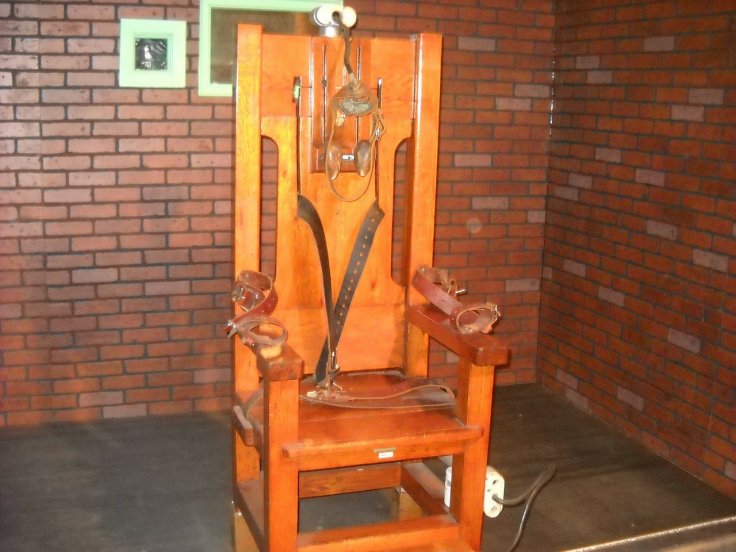A Tennessee man on death penalty will be executed by electrocution on Thursday, authorities said. Nicholas Sutton, 58, will be the sixth person to be put to death by electrocution in the state in 16 months.
Sutton was 18 years old when he was serving time for killing three people, including his grandmother in 1979. He was later sentenced to death in 1986 for killing a fellow inmate Carl Estep after a fight over a drug deal in an East Tennessee prison, according to the Associated Press.
However, a clemency petition filed by former Correction Lt Tony Eden and addressed to Governor Bill Lee describes Sutton as a rehabilitated prisoner. "I can confidently state that Nick Sutton is the most rehabilitated prisoner that I met working in maximum-security prisons over the course of 30 years," the petition read.
Estep was serving a term for raping Hall's stepsister

Sutton's supporters include friends, family, and also unusual allies such as prison workers and Estep's oldest daughter Rosemary Hall. It is argued that Sutton's childhood was traumatic due to abandonment, abuse, neglect, and the eventual spiral to drug abuse.
In the clemency petition, Hall called Estep an "evil man" and accused him of causing a traffic accident that led to the death of her baby sister. Estep was serving a term for raping Hall's stepsister before his murder in prison. But Lee said he would not intervene in Sutton's execution scheduled to take place in a Nashville prison. Reports suggest, as of Wednesday night, at least two appeals to the US Supreme Court against Sutton's execution were still pending.
Electric chair vs lethal injection

Sutton, like all four others who were executed in the past 16 months, has chosen the option to die in the electric chair. Tennessee prison offers the option to prisoners whose crimes were committed before 1999 against the state's preferred execution method, lethal injection.
While it is unclear why Sutton chose electrocution over lethal injection but reports state that inmates in Tennessee have preferred the option due to the perception of the death being quicker and less painful. Georgia and Nebraska have ruled execution by electric chair unconstitutional. The US Supreme Court also clearly mentions electrocution as constitutional.








